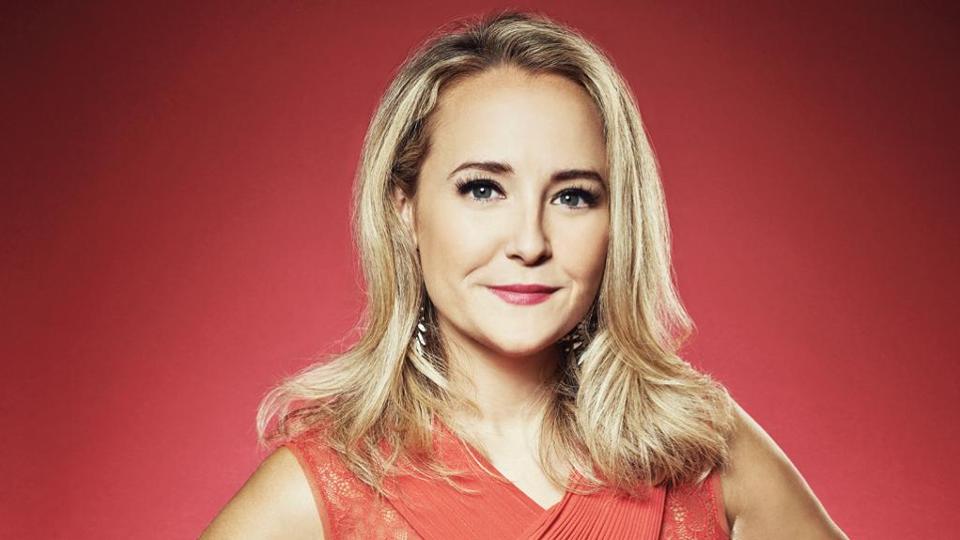Alexa von Tobel and Penny Pritzker launched Inspired Capital with a shared vision: to help entrepreneurs transform their ideas into successful business ventures. Inspired Capital recognizes and invests in the potential of female-led organizations, a corporate demographic that has traditionally been drastically underserved.
In cofounding Inspired Capital, Alexa draws on her extensive experience in the fields of venture capital and fintech. In 2009, she launched LearnVest, a web-based financial planning platform created with the aim of redefining the American approach to personal finance, matching clients with financial planners to create simple, affordable financial plans.
LearnVest was a highly successful venture, raising approximately $70 million in investment. Alexa sold LearnVest in 2015 to Northwestern Mutual for a reported $375 million.
Alexa continued to serve as chief innovation officer for Northwestern Mutual, ultimately heading the organization’s venture capital arm: Northwest Mutual Future Ventures. Just days after leaving Northwestern, she filed paperwork with the Securities and Exchange Commission, establishing the Inspired Capital fund, with a $200 million target. Inspired Capital hit that target in 2019.
In addition to her work with Inspired Capital, Alexa is a New York Times Bestselling Author of two personal finance books: Financially Fearless and Financially Forward. She also writes for Cosmopolitan and Money Magazine, as well as hosting a weekly radio show on Sirius XM.
I recently sat down with Alexa von Tobel to chat about her passion for entrepreneurialism and how she takes companies from ideas to success stories.

Q. If there’s one word that I think of when it comes to you, it’s drive. Where does that drive come from?
A.I really think it’s ingrained in who I am. My mom always said, “Do what you love, and you’ll never work a day in your life.” I believe the opposite to be true: Do what you love, and you’ll work 24/7 because you are just that passionate about it.
Q. What excites you more than anything?
A. I am most excited by meeting entrepreneurs who are truly building the future. It’s my favorite thing to think about, and when I find someone who has a wildly big vision and that internal intensity to go after it no matter what, it drives me and my own energy.
Q. You left Harvard to work at Morgan Stanley’s prop desk, before leaving to be the Head of Business Development at Drop.io. What prompted you to leave the world of finance for entrepreneurship?
A.I actually applied to and was accepted to HBS while I was an undergrad. I knew I needed some work experience before going to business school. Morgan Stanley offered great exposure to the finance world and seemed like the logical path.
About six months before I was set to go to HBS, my friend Sam Lessin called and asked if I wanted to give startup life a try. I already knew I wanted to start something of my own someday, and he offered me a front-row seat to building a startup. It was a no-brainer for me.
Q. Drop.io was the start of whole new category, with file sharing companies like Dropbox founded in 2007, Box in 2005, and WeTransfer in 2009. Drop eventually sold to Facebook. What did you learn being in the early days of a new category that now is worth billions?
A.It was wonderful to work side by side with someone as innovative as Sam Lessin. He had a vision that there would be a growing volume of information people would want to keep safe and secure online. Sam is a total visionary in the category, and I’m lucky to call him a dear friend.
Q. You then went from entrepreneur to founder when you launched LearnVest. What inspired that jump?
A. I first had the idea for LearnVest as an undergrad. As I was heading off to Morgan Stanley, I realized that I had no idea what to do with my personal finances—and my friends were in the same boat. The recession only emphasized that Americans needed help around their wallets.
I couldn’t stop thinking about my idea – so much so that I decided to take a leave of absence from HBS to dive in full-time. While a recession was a wild time to start a company, it was exactly the right time to provide a real technology-driven solution to personal finance for people across the country.
Q. Where did the idea for LearnVest come from and why did you think you were the best to solve it?
A. When you’re sick, you go to the doctor. But when it comes to money, the system is so broken. Finance professionals exist to help those who already have wealth to manage—but the average American didn’t have an easy way to get guidance or build a strong financial foundation. I knew that technology could help deliver a platform, supplemented by human expertise, to help people answer their toughest questions about money. It’s just math, so once you understand someone’s goals, you can give them direction on where to put their next dollar.
The idea is rooted even more deeply in the experience of suddenly losing my dad at a young age. While my mom was an expert budgeter, I saw her struggle to get up to speed on the full picture of our finances and wanted to give households across the country a clear financial plan that would remove as much stress as possible.
Q. What was the process of founding an early stage company through selling to a large company like Northwestern Mutual? Any lessons learned?
A. Way too many lessons to name! It was really an incredible startup ride, but I would say the most important thing is to have grit. It’s the trait I look for in investments at Inspired Capital. There will be sleepless nights, wildly difficult decisions, and a roller coaster of emotions. You have to fundamentally believe you are able to take your company through to the next day in order to make it all work.
Q. After the acquisition, you became the Northwestern Mutual’s first Chief Digital Officer and Chief Innovation Officer. We’ve seen large incumbents struggle with innovation, how did you structure this role and what was the vision?
A. It was really an incredible opportunity and honor. Throughout the acquisition process, I knew Northwestern Mutual was the right partner both for LearnVest and for me personally. My team grew overnight, but I was most focused on helping to drive the company’s product and tech orgs through innovations that would sustain — knowing how quickly technology (and customer expectations) are evolving. The vision was to encourage fresh ideas and a fast pace of growth to the broader company and to further grow Northwestern Mutual’s New York campus (formerly LearnVest) as a hub for innovation.
Q. What prompted your move to Northwest Mutual’s venture arm? More philosophically, do you think the corporate venture model has or will continue to supplant the role of R&D?
A. The venture arm went hand in hand with my role as Chief Innovation Officer. I think the corporate VC model is a great one, as it allows big companies to get closer to innovation. Both big companies and startups have much to learn from each other, and corporate VC helps bring scale and business development opportunities to younger companies that they can’t otherwise get.
Q. Just days after you announced you were leaving Northwestern, you filed paperwork with the SEC for a new fund with a $200 million target, called Inspired Capital. Did you always know that this was your vision?
A. Throughout my time at Northwestern Mutual, I found myself spending nights and weekends advising entrepreneurs through the early stages of their business and made a series of angel investments in some phenomenal founders, like Howie Liu of Airtable. I was so invigorated by this “hobby” and knew that it was the next chapter that made the most sense for me.
Q. I’ve heard Inspired Ventures described as a more modern seed and early-stage venture firm. How would you describe it?
A. That’s exactly right. We’re an early-stage firm, headquartered in New York, investing across the country. But beyond that, we are building the firm we wish existed when we started companies here. We believe venture firms should look and think like the entrepreneurs of tomorrow, and we’re excited to bring our operating experience to the table in this new way.
Q. How did your relationship with Inspired Capital cofounder Penny Pritzker materialize? How would you say you complement each other when it comes to venture investing?
I feel so fortunate to have Penny as a partner. When Penny was Secretary of Commerce, she and Obama put together the PAGE program – Presidential Ambassadors for Global Entrepreneurship. I had the pleasure of getting to know her in that capacity and to spend time together on a program trip to Morocco.
We immediately clicked, and when I shared my vision to start a new firm, she raised her hand to become my partner. Penny has tremendous experience as an entrepreneur, having built and scaled numerous businesses, she’s worked through a wide range of business and economic cycles, and she has deep investment expertise.
Bringing her vast experience to the table as we consider investments at Inspired is tremendously valuable, and her unique perspective (sitting on the board of Microsoft, Harvard, etc.) elevates how we think about the tech landscape overall.
Q. Does regulation play a factor when investing in FinTech? Do governing bodies like the SEC, FINRA, etc., present challenges and/or opportunities for entrepreneurs in building businesses?
A. It absolutely plays a factor – we need to understand how regulations (current or future) could impact the business. Trust and compliance are of the utmost importance in FinTech, so that’s always a core question in the diligence process, and I know firsthand what it takes to stay compliant from my time at LearnVest.
Q. How does your experience in building, scaling, and selling companies translate into investing and adding value for your startups?
A. I love what we say in our mission statement: When it gets tough, our resolve gets tougher. We are in the boat, and we will row harder.
We have been there and will get in the weeds with our startups to help them however we can — walking through a deck with them, making an introduction to a partner, helping them close a hire. I always say being a CEO is like being punched in the face every day. You are being hit with the toughest problems in the company that other smart people on your team haven’t yet solved. So, we’re there as a firm to pool our collective talents and partner with founders to navigate through those tough moments.
Q. What is the ideal target entrepreneur in your mind?
A. This is a great question. For me it boils down to someone with grit (they will give their all to this business), someone who displays founder-market fit (a compelling reason for why they’re the exact right person to build this company), and someone who is a visionary (going after something big and able to get others on board).
Q. 56% of LPs have female decision makers, but just 12% in VC – how are you and Penny flipping this model on its head? From your perspective, what does the VC space need?
A. I think role modeling in any industry is important and will lead to more and more diversity across the industry. When entrepreneurs see a firm that better reflects diverse viewpoints, I think it really resonates. I hope that the industry as a whole continues to create more spots for talent of all shapes and sizes to grow.

